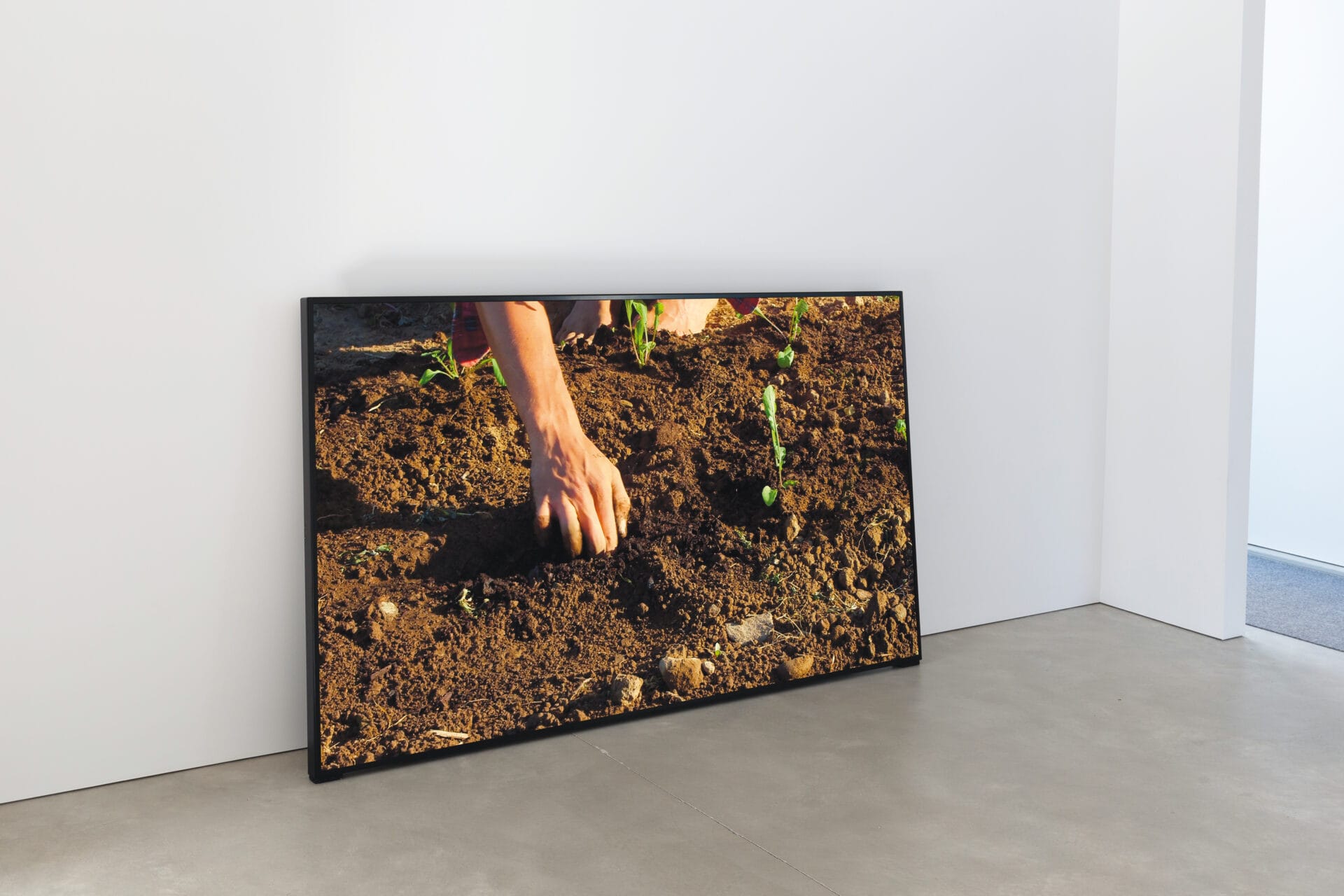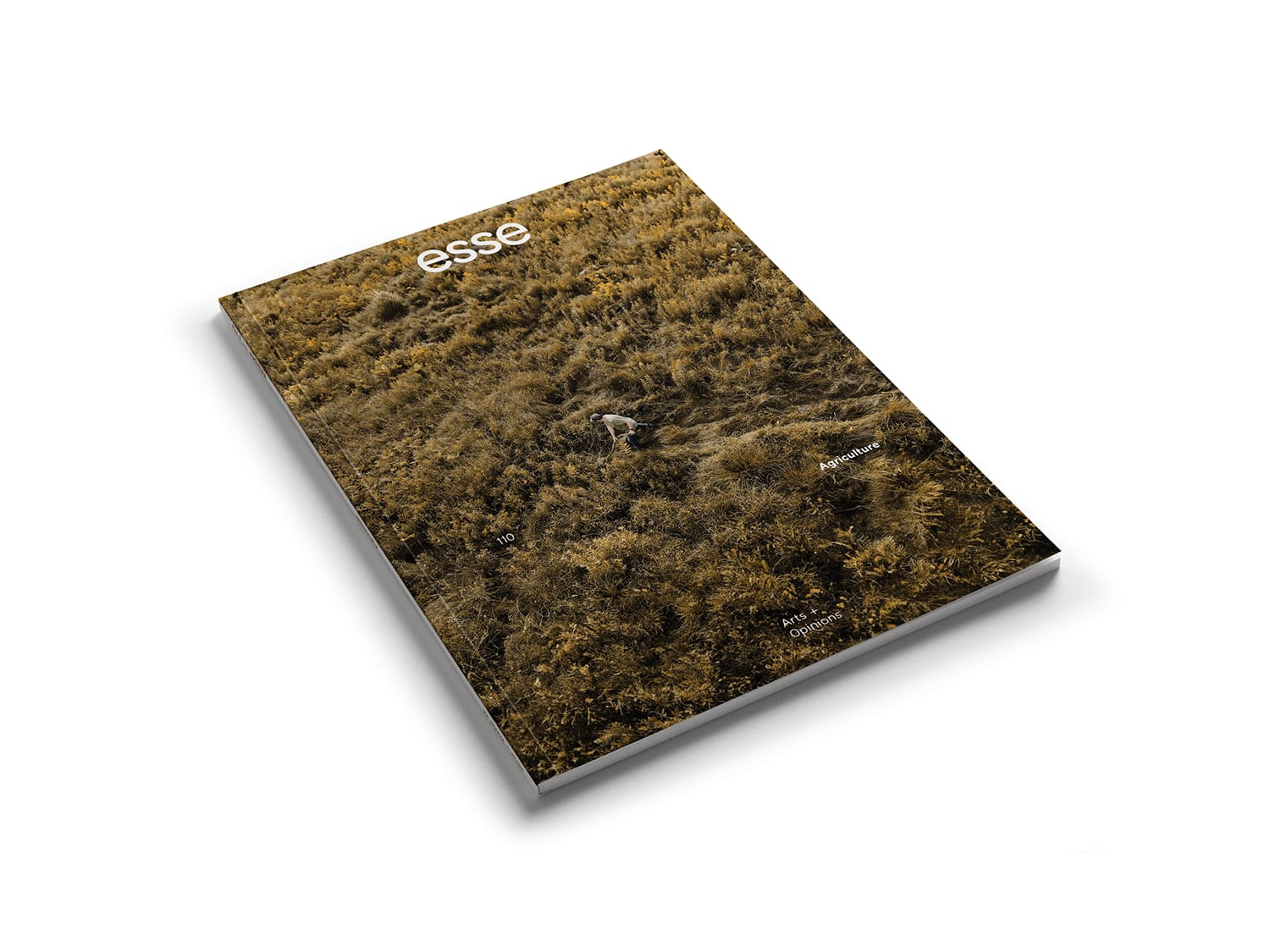
Photo: H&S, courtesy of the artists
From Appropriating Territory to Valuing Agricultural Land
The appropriation and financialization of land and the tactics used in their pursuit, such as the rezoning of unused land, are sources of interest and inspiration for the artists considered in this essay. In 2020, Richard Ibghy and Marilou Lemmens benefited from a research residency at the Grantham Foundation for the Arts and the Environment, located in a rural area near Drummondville, to develop a body of works related to ownership of agricultural land. Rooted in the Victoriaville region, the project Friches (2023) invited artists to consider unused land other than as plots unsuitable for agricultural production. Throughout summer 2023, Mériol Lehmann, Angela Marsh, Karine Locatelli, and Sonia Reboul intersected in site-specific and gallery interventions, as part of creative residencies and an exhibition at the Centre d’art Jacques-et-Michel-Auger. Together, Ibghy & Lemmens’s works and those in Friches offer a critique of the devalorization of agricultural land for the benefit of financial systems and a sensitive revalorization of it through art interventions that emphasize the affective, historical, and ecological value of land.
